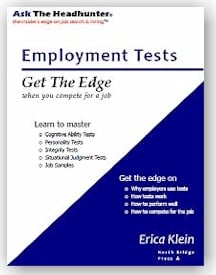In the December 16, 2014 Ask The Headhunter Newsletter, a job seeker gets two 25% salary boosts and lands hard:
Question
I left a management job at Company A 16 months ago after ten years. It was becoming uncomfortably similar to the company you refer to in Death by Lethal Reputation. A friend recruited me to Company B for a 25% pay raise. Company B turned out to be a good place to work, but after six months there another friend requested I talk with his director as a favor, and to cut to the chase, Company C offered another 25% raise on top of what I was making and I took it.
Since then, at Company C I have had six different bosses, management has re-structured three times, and my co-workers have been very difficult to work with since they all seem focused on the politics of positioning for the next shake-up. (It’s scheduled for next month.) This caught me completely by surprise since this kind of thing really hadn’t been happening there before.
I am growing impatient with the chaos and losing confidence in my managers, but I am reluctant to have another change so soon on my resume. I’m very good at what I do, which is highly specialized technical work. I’m fortunate to be in such demand, and I admit the money was a big part of jumping to Company C, though it’s clear that I blew it.
How many changes are too many on a resume? How much patience do I owe this employer? How would I present myself to a prospective employer without appearing like I am hopping jobs for money?
Thanks and best regards.
Nick’s Reply
Time to pay the piper, eh? Don’t feel too bad. While you should have looked under the rug more carefully before you took this latest job, I know it’s hard to turn down such salary increases from companies that are hungry to hire specialized workers.
When you pursue that next job, interview the company in more detail. (See “Due Diligence: Don’t take a job without it” in Fearless Job Hunting, Book 8: Play Hardball With Employers.) The only way to get the real story before you take the job is to talk to managers that are peripheral to your own department, and to other employees who know how the business really works.
When a company begins to indicate that it’s serious about you, that’s the time to ask to meet more members of the organization.
How to Say It
“It’s important to me to know how Sales (or Operations, or Engineering) functions, because I’ll be affecting their success and they’ll be affecting mine. I’d like to meet with the manager of Sales, and with some of the other technical people in the department I’d be working in. Can you arrange that?”
This is the kind of insight that will help you make a more informed decision, and help you avoid surprises.
 But let’s look at your current situation. What is your responsibility to this company? You’ve been there about ten months. You might stick around long enough to see how the new re-org works out. Then I’d have no qualms about leaving if things don’t get any better. But even if you give that six months, you’re still talking about a short tenure right after a six-month stint at Company B.
But let’s look at your current situation. What is your responsibility to this company? You’ve been there about ten months. You might stick around long enough to see how the new re-org works out. Then I’d have no qualms about leaving if things don’t get any better. But even if you give that six months, you’re still talking about a short tenure right after a six-month stint at Company B.
No matter how you cut it, you come across as a job-hopper who’s gone for the bucks. I’m not criticizing you for that, but I will suggest that now’s the time to figure out what you really want in your career. Define it clearly — industry, business, company, technology, function, compensation, the work itself, the people. Then pursue it. Ignore the wrong jobs. Go after the companies where you want to work.
Here’s some advice that emphasizes just how deep you must dig to avoid another mistake — from Fearless Job Hunting, Book 5: Get The Right Employer’s Full Attention, p. 12:
Check a company’s references
Talk with people who depend on the company for a living: attorneys, bankers, investors, landlords, and others. This will give you a community-wide perspective and also help keep you out of harm’s way. Explain that you are considering an investment in the company. (Your career is indeed an investment!) Ask for their insight and advice. Is this a good company? Why?
When companies pursue you too aggressively, they can hurt you. You can start to look like damaged goods because you’ve jumped around too much. I wouldn’t say you’re there yet — not with two short jobs on your resume.
My guess is you might have to take a pay cut to get the kind job (and environment) you want. If it comes to that, consider it the cost of getting back on track. In a good company, you’ll have a chance to make it up pretty quickly. (See “Taking A Salary Cut to Change Careers” in How Can I Change Careers?)
The best way to deal with the resume issue is to avoid using one. (See Skip The Resume: Triangulate to get in the door.) The kinds of contacts who helped you win your last two jobs should comprise your strategy. When a buddy introduces you, he or she can also explain your situation, and that you’ve learned a lesson. And don’t avoid that topic in an interview: Be blunt about it.
How to Say It
“I made a serious mistake. Not just going for the money, but not looking carefully at a company before enlisting. Before I take another job, I want to make sure I’m right for the company, and that the company’s right for me. So please feel free to be blunt with me, and I will be with you, too. I want to make sure we can live and work together to get the job done.”
As you decide which companies you want to work for, make it your first goal to develop contacts there. If you lack them, you can create them by polling your friends.
Even if you decide to stick around till after the re-org, start your search now. Work at this patiently, and choose carefully. Put your two lemons in their place, swallow the sour taste, and get ready to move on.
I wish you the best.
Have you ever regretted taking too much money? How many job leaps are too many?
: :





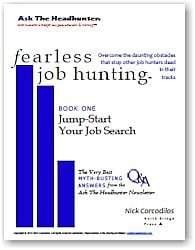
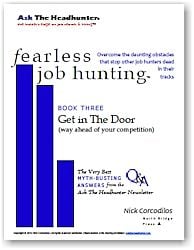
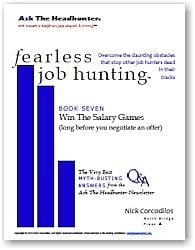
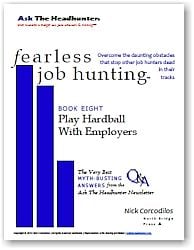

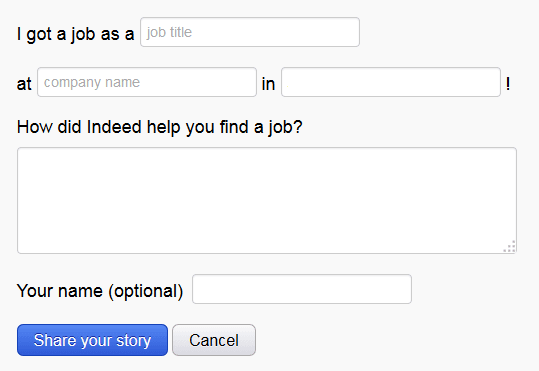

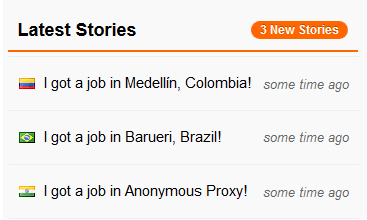





 d at the reviews in Glassdoor prior to the interview and, though there were negative reviews, there were overwhelmingly positive ones as well. I was concerned about the negative reviews, so I brought it up in my interview. The recruiter stated that the office prided itself on being different from its corporate parent, and he felt I was a good fit. So I took the job.
d at the reviews in Glassdoor prior to the interview and, though there were negative reviews, there were overwhelmingly positive ones as well. I was concerned about the negative reviews, so I brought it up in my interview. The recruiter stated that the office prided itself on being different from its corporate parent, and he felt I was a good fit. So I took the job.